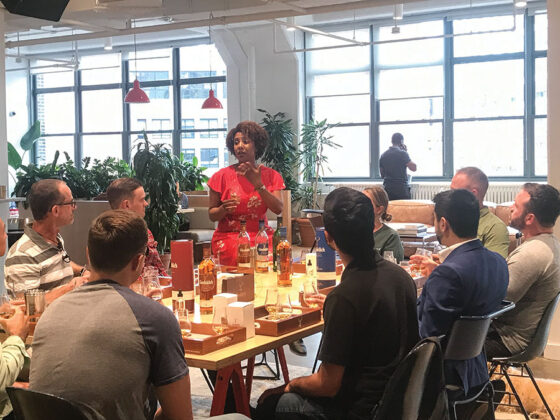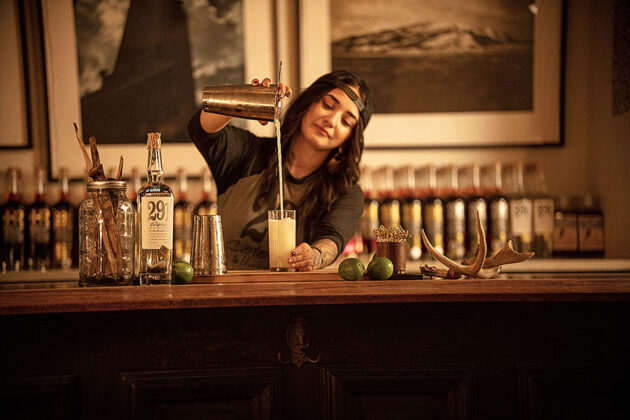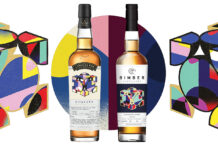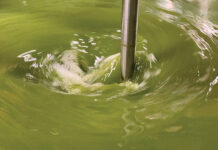You’re an owner of an emerging brand. Your mission statement and vision are solid, and you make great products. How do you build your brand, convey your brand story, and connect with consumers outside your distillery?
One possibility? Brand representation. You may think you don’t have the budget for a full-time role, but I spent much of my career as a brand ambassador working with large and small brands, so I’ve experienced both the power of sheer grit and the luxury of sky-high budgets. The pandemic gave us new tools and platforms to leverage to reach audiences across the globe, putting smaller brands on a new footing in virtual spaces. With the right approach, it can be possible to achieve tangible results without massive spending.
What Type of Representation Do You Need?
Knowing what type of representation your brand needs depends on your goals and the layout of your market. The size of your market, potential distribution channels, growth goals, whether you’re in a control state, and overall marketing plan will help you determine what will work for you initially. Knowing your immediate goals and having a solid vision of how you want to grow your brand is vital to the decision to take on a brand ambassador, and each brand’s idea of success will be different.
Unlike traditional sales roles, a brand ambassador is responsible for creating brand awareness through advocacy in events and education and can work with distributor representatives to educate them on your brand. Like most people who own or work for a small business, your brand representative can wear many hats in a hybrid role and deliver strong key performance indicators (KPIs) with small budgets.
Key Advantages of a Brand Ambassador
Ambassadors can extend the human touch of your brand, even if your founder is ultimately the face of the brand. A savvy brand ambassador knows how to humanize the brand on a deeper level and connect your story to consumers. They strengthen marketing and recruit consumers to be fellow ambassadors. Being in contact with your customer base regularly allows them to focus the brand message on the positive. They are practical problem solvers and are a form of customer support, addressing customers’ challenges or questions when they are out in the market. In one past role, for instance, bartenders repeatedly told me that the closures on our bottles were too difficult to open and bottle labels were tough to differentiate between expressions. They felt comfortable relaying these issues to me, and I gathered more feedback to forward to my production team and address the issue. A sales rep may not be in contact with the bartenders, and they may not visit during service hours to gain this critical feedback.
Good brand ambassadors should be friendly, outgoing, and knowledgeable and educated about your brand, spirits in general, and the specific processes your distillery utilizes. Ideally, they should have basic cocktail knowledge, be able to assist with cocktail placements, and know the best way to use your brand’s spirits in cocktails. Cocktail knowledge is often an underrated skill in this role, but make no mistake: If you have a brand ambassador who is cocktail-savvy, they can assist accounts with better cocktails where needed, interact with bartenders on a deeper level, and help get liquid to lips in more ways than just tastings. They should have experience in event planning and know how to build relationships with local vendors and other small businesses — for example, collaborating with a local chocolate shop. If they use your whiskey in their truffles, for instance, you now have brand ambassadors in that chocolate shop and reach into a market you didn’t have access to previously.
A great brand ambassador knows how distributor programming works and has innovative ideas. The spirits industry can be accommodating and collaborative, especially in craft. Ask your fellow distillery owners for help and advice on how their ambassadors have succeeded with programming. Programming is another area where creating solid relationships by working together with distributor reps or buyers will prove powerful and lead to a better return on investment (ROI). They should also have genuine excitement and passion for the role and your brand and be good at relaying that excitement to consumers and buyers.
Unique Challenges in the Craft Space
Craft brands face challenges that can seem insurmountable. Distributors seem overburdened with massive portfolios dominated by large brands with pay-to-play budgets. Liquor store owners lack the bandwidth to discover new brands and find shelf space for the ever-growing spirit offerings each year. Distributor representatives are only sometimes willing to connect with smaller brands outside of their quarterly KPIs and rely on sales bonuses from large brands to make liveable salaries; this leaves little or no time to focus on smaller brands outside of quarterly promotions. And corporate-driven chain markets can often take more work for craft brands to enter.
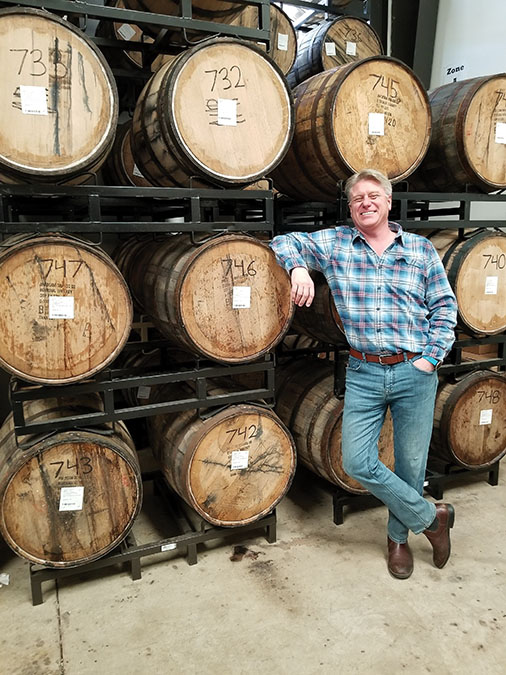
Some craft distillers have opted out of this dynamic altogether. Colin Keegan, founder of Santa Fe Spirits in New Mexico, hired a sales manager instead of a brand ambassador. “With the three-tier system, the gatekeepers inside the distributors, and the freight cost, many factors prohibit us from gaining new distribution channels outside our state. It doesn’t make sense for me to focus on sales in a market I cannot control,” Keegan says. “Direct-to-consumer sales are key; being able to sell to accounts myself directly has become a necessity, in my opinion, to grow in this current climate.” Virtual events, Keegan says, have helped widen the brand’s reach with minimal effort and little cost.
Others, however, have found ways to adapt. Philip Rawleigh, senior VP of sales for Distillery 291 in Colorado Springs, Colorado, began as a tasting room educator in a 300-square-foot space in 2014. Early on, brand owner Michael Myers saw that Rawleigh was passionate about the brand. Rawleigh explained, “My brand creator allowed me to have a voice and tell his story uniquely and offered me a future with the brand.”
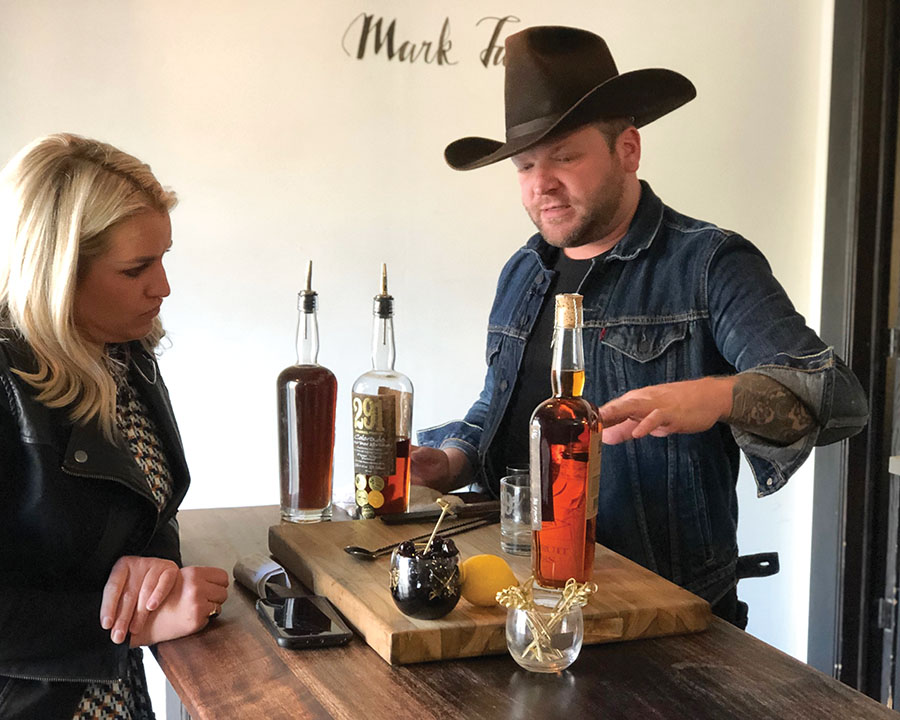
Myers wanted to be in outside markets across the U.S. as quickly as possible, so he directed much of his (small) budget to outside sales. “A shoestring budget is an understatement for us. I would figure out how many cases I needed to sell to fly to California and do the work. That’s how I would plan my trips. I knew I had to sell a certain amount before I could go home.”
Rawleigh believes another factor that contributed to the success of Distillery 291 was the decision to work with LibDib, an untested new distribution channel. The risk paid off. “LibDib doesn’t work like a traditional distributor,” explains Rawleigh. “LibDib purchases products from the supplier. It can be one case at a time or a pallet, and suppliers ship them directly from their facility on behalf of LibDib, often directly to the buyer.”
There are pros and cons to this method. Being limited to one shipping company to ship alcohol at exorbitant rates affects your bottom line. Additionally, companies like LibDib are still new to the market, and many accounts do not have relationships with these nontraditional distributors. The cumbersome task of getting the buyer set up with yet another system for ordering can pose an additional barrier, and it’s often left to the brands themselves to get the buyer signed up. However, platforms like these put more control into the supplier’s hands, which is a real benefit.
The virtual space is still alive and a potential sales channel for nontraditional distribution. Consumers have more ways than ever to interact and buy your products. Virtual tastings are an excellent tool to get liquid to lips in markets you may not be able to reach in person. Utilizing a partner to handle online sales and shipment of your product may lead to much smaller margins. However, it’s a vital marketing tool for your brand.
All About Connections
Building solid relationships with buyers out in the market, especially in retail and on-premise accounts, will deliver lasting results. A good brand ambassador will be likable, know how to connect with everyone they encounter, bring value to your accounts, and have great ideas within any budget to reach the right buyers and consumers.
When Rawleigh talks about Distillery 291, he takes you on a journey, focusing on the personality and story of 291’s founder, Michael Myers. Within minutes, you are connected to Myers’s experience ideating the brand. The room is captivated as Rawleigh continues to weave this story with the smell of whiskey in the air at a tasting. Now that Rawleigh has a captive audience, he focuses on what makes 291’s whiskey unique, and you can’t wait to taste it. The experience is unforgettable.
Because Rawleigh was working toward his future with Distillery 291, he was willing to make certain sacrifices that made it possible to have someone fulfill his role even when budgets were tight. You can find bottles of Distillery 291 on shelves across the U.S., thanks in part to Rawleigh’s success as Distillery 291’s first brand ambassador.
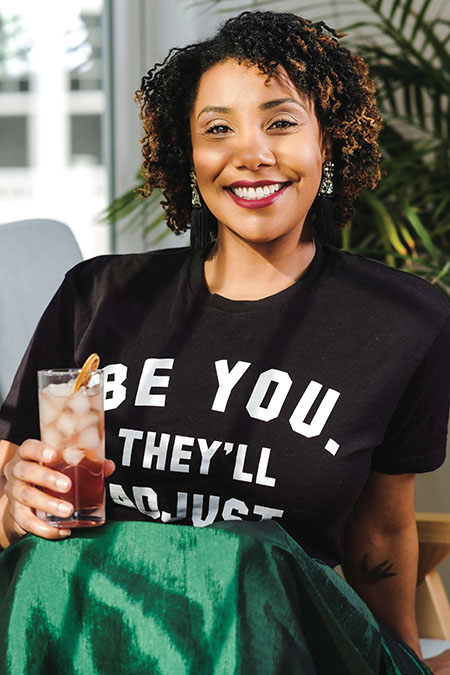
Tracie Franklin, formerly of William Grant & Sons, believes listening and genuinely caring about people is essential for a brand ambassador. Ask questions of your audience. Approach buyers with a helpful and giving attitude. On-premise accounts desire staff education and staff incentives for sales contests. Incentives do not have to be pricey; listen to feedback from managers on what their staff would find exciting and valuable. Be the brand that shows up consistently and delivers personalized service, adding value to their business.
Doing More with Less
When a creative person is leading the charge, much can be done with a small budget. Lavish brand activations are banking on your memory of the event to drive future sales. You are more likely to reach for X vodka next time you’re in the market to replenish your home bar or give a gift. Although this method can be successful, extravagance isn’t necessary to make a lasting impression. The emotional power of a great brand story can be far more powerful.
With the current climate in our industry, an out-of-the-box approach will serve you well in this area. Many talented folks were burned out working in the market, found themselves ready for a change, and now offer themselves as consultants. Hire one of these consultants to develop OND (October, November, and December) programming or to educate distributor sales teams on products and brand stories. They can offer event support in specific markets.
In another unique approach, a former colleague of mine offers their services for product launches and activations on behalf of small and emerging brands. As an independent consultant, he works for the brand for roughly three to four weeks a quarter or even six weeks a year. These are just a few examples of strategic pinpoint approaches that can yield success.
You may have someone who works in your gift shop part-time, one of your bartenders at your distillery, or even a tour guide. If they show enthusiasm for your brand, invest in that enthusiasm, and grow together, that enthusiastic individual could be an essential component of your brand’s future success.
When it is so important to differentiate yourself, it is worth thinking creatively about brand representation. If you are the brand that shows up, you’re the brand they’ll want to buy.

